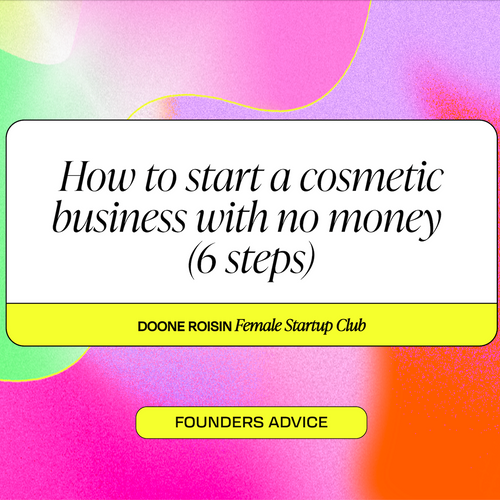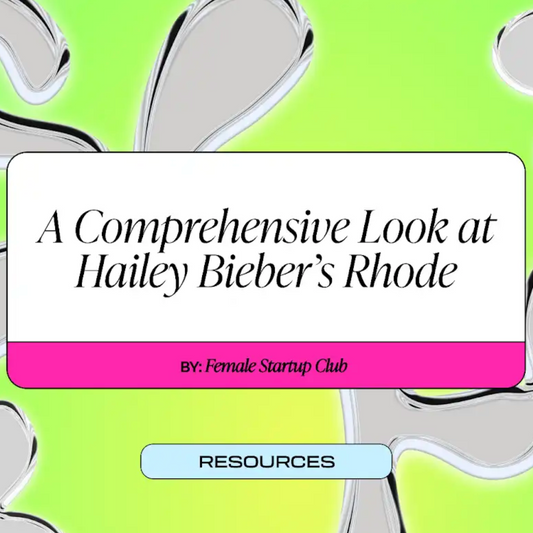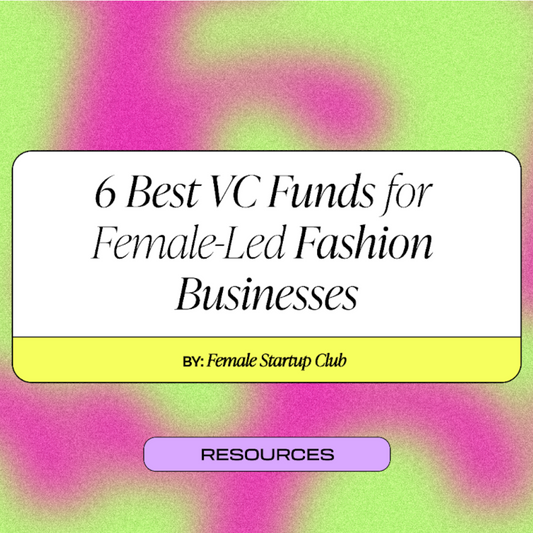Today we’re learning from Charlotte Chen Pienaar, the founder behind one of the coolest bootstrapped companies around right now.
We’re talking about how she approaches money and the old school tips to funding a CPG brand, why retailers like Ulta and Sephora came knocking on her door and the pros and cons to creating a truly sustainable brand.
Everyday Humans make next-generation sunscreens that are comfortable, conscious and designed for all.

When it comes to navigating the beauty industry, Charlotte Chen Pienaar, founder of Everyday Humans, has become a beacon of inspiration for aspiring beauty entrepreneurs. Her journey is a testament to the power of passion and innovation in creating a standout brand. With her self-described “sunscreen nerd” status and a commitment to sustainability, Charlotte has attracted major retailers like Ulta and Sephora. So, what exactly do these giants seek when scouting for new beauty brands? Let’s dive into Charlotte’s insights and learn how she’s built Everyday Humans into a next-generation sunscreen line that's comfortable, conscious, and designed for everyone.
1. A Unique Brand Identity
One of the first things that drew retailers like Ulta and Sephora to Everyday Humans was its distinct branding. Charlotte recognized that there weren’t many indie options in the sunscreen market, so she took a bold approach. Forget the traditional sun-themed colors and branding; Charlotte crafted a unisex vibe that reflects streetwear and urban fashion.
She shared, "I wanted it to not look like another SPF brand. There’s no sun or bright yellow in our branding." This innovative perspective allowed her brand to stand out, appealing to a diverse range of customers from 16 to 65 years old. Retailers are eager to find products that break the mold and resonate with a broad audience, and Everyday Humans does just that.
2. A Commitment to Sustainability
Sustainability isn't just a buzzword for Charlotte; it’s woven into the very fabric of Everyday Humans. As a self-proclaimed “sustainability nerd,” she’s dedicated to minimizing the environmental impact of her products. Retailers today are increasingly focused on partnering with brands that prioritize eco-friendly practices, and Charlotte’s commitment is a huge selling point.
Everyday Humans is one of the first plastic-neutral sunscreen brands, and Charlotte emphasizes the importance of a lifecycle assessment (LCA) to evaluate their emissions. "If you don’t know what you’re emitting, how do you know how to offset it?" she asks. By ensuring that her brand is built on sustainable practices from the start, she has positioned Everyday Humans as a leader in conscious beauty.
3. A Strong Digital Presence
Charlotte has mastered the art of leveraging social media to promote her brand. "I don’t really pitch; they find us on Instagram," she explains. This highlights the importance of having a solid digital marketing strategy. Instagram isn’t just a platform for Charlotte; it’s a powerful tool that connects her directly with buyers and customers.
For new beauty brands looking to catch the attention of major retailers, building an authentic and engaging online community is essential. Charlotte’s success in this area demonstrates that a strong digital presence can lead to significant opportunities in the retail space.
Final Thoughts
Charlotte Chen Pienaar's journey with Everyday Humans serves as a fantastic blueprint for anyone looking to break into the beauty industry. By focusing on unique branding, sustainability, and harnessing the power of social media, she’s created a brand that resonates with both consumers and retailers.
If you’re building a CPG brand and want to learn from inspiring women like Charlotte, consider joining Hype Club, where you can access modern mentorship, live workshops, and masterclasses tailored to help you succeed.
So, whether you’re just starting out or looking to elevate your existing brand, remember that innovation, sustainability, and authenticity are key ingredients to success in the beauty world.



